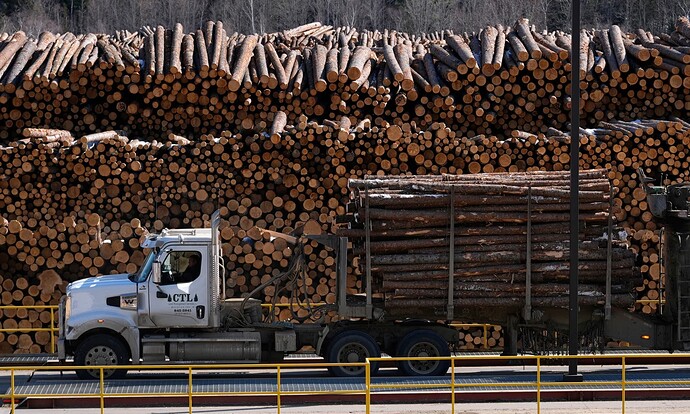Unsustainable logging is one of the global north’s best-kept secrets. We’re running out of time to stop it
The world is running out of time to halt deforestation and forest degradation. Yet instead of stepping up, the United States is dismantling forest protections and undermining global progress – highlighting the dangers of global forest policy that fails to hold the wealthiest, most powerful countries accountable.
Unsustainable logging is one of the global north’s best-kept secrets. Each year, millions of acres of old-growth and primary forests across North America, Europe, and Australia are clearcut under the guise of “sustainable forest management”. International policy, by design, looks the other way, focusing attention instead on deforestation in the tropics. This double standard allows the world’s wealthiest nations to evade accountability for industrial logging’s catastrophic consequences.
It is a system built on the false assumption that the global north behaves responsibly, while scrutiny is reserved for tropical countries. But the latest actions by the US highlight just how dangerous and unbalanced this paradigm is.
President Trump has taken an axe to forest protections in the US, announcing two executive orders that aim to strip away foundational checks on destructive logging. Under the pretense of national security, Trump’s orders aim to gut environmental safeguards and fast-track industrial clearcutting in some of the US’s most precious and climate-critical forests. This aggressive expansion will degrade irreplaceable forests like Alaska’s Tongass national forest – one of the world’s largest intact temperate rainforests. It will also increase carbon emissions and make communities more vulnerable to climate disasters.
Meanwhile, as Europe strengthens forest accountability, US state officials are pushing to exempt the country from new deforestation protections… These officials, echoing industry talking points, are urging the EU to exclude US wood products from a law requiring due diligence to prevent imports or exports tied to deforestation or forest degradation. Their argument? That the US doesn’t need oversight.
The global north has long dictated the terms of international forest policy, supporting stricter environmental standards on tropical nations while sidestepping accountability at home. Canada, for example, clearcuts over 1.3m acres of forest every year yet claims near zero deforestation through regulatory loopholes. Sweden has marketed its forestry sector as a climate leader while logging threatens its last remaining old-growth forests.
But Trump’s latest action clearly shows the current model needs to change.
The world needs a more equitable, partnership-driven model of forest protection. In August 2023, the African Ministerial Conference on the Environment called for the creation of a framework to drive more equitable global forest policy. More than 100 environmental organizations echoed this call ahead of last year’s UN climate conference in Dubai.
With the next UN climate meeting taking place this year in Belém, Brazil – the gateway to the Amazon rainforest – Brazil has an opportunity to work with other countries to create this new reality.
There are some signs of change. The EU is strengthening trade policies to exclude deforestation-linked products. Investors and corporations are aligning with international commitments to halt and reverse deforestation by 2030. In Illinois, legislators have introduced a bill to eliminate state procurement tied to deforestation and forest degradation. United Kingdom policymakers recently acknowledged the need to avoid incentives for logging primary and old-growth forests.
A fragmented system that arbitrarily evaluates risk differently in the global south and global north is bad for the climate and bad for business. Markets need consistency, and environmental policies should apply universally.
For decades, the global north has molded international forest policy to benefit its logging sector. After marking the International Day of Forests, on 21 March, in this critical year, the global community must seize this moment to shape a new, more equitable, form of global forest governance. The world needs unified standards for all forests that hold all countries, including – especially – the most powerful, accountable.
